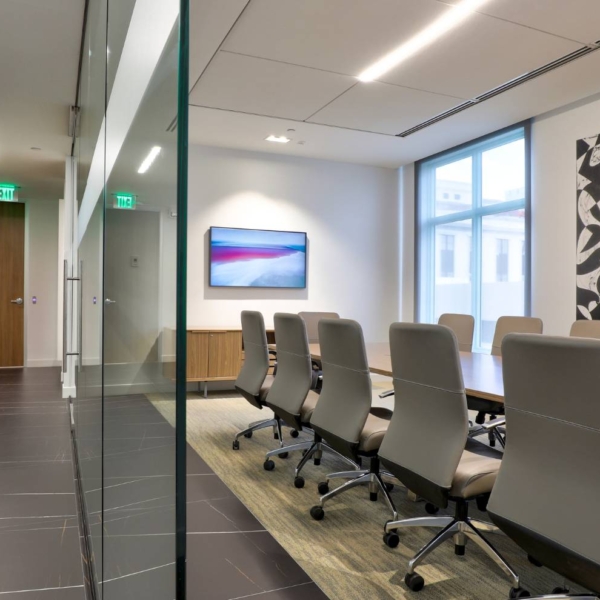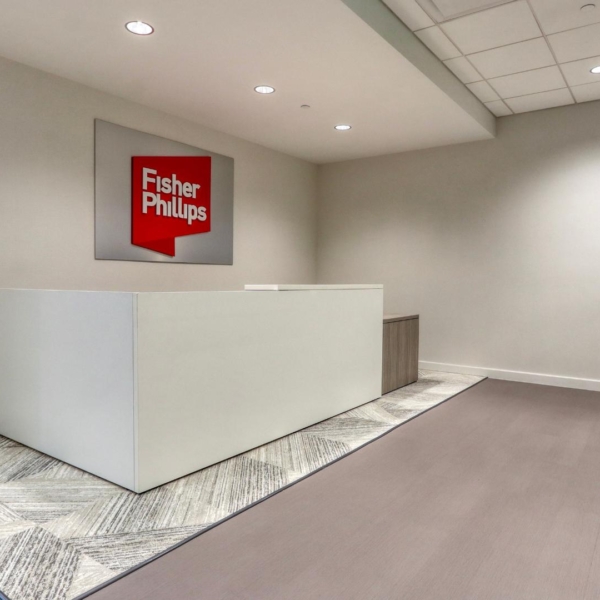On this page, we’ll discuss how to verify the licensing of General Contractors Miami, why it is important, how general contractors Miami ensure compliance with regulations, and more!
Intro To General Contractors Miami
To ensure that service professionals and general contractors Miami are licensed for call business remodeling, start by for their credentials and performing a background check. A reputable contractor will readily provide their license number.
You can cross-reference this number with the Florida Department of Business and Professional Regulation (DBPR) database for background checks of service professionals and businesses. This state-run agency maintains a list of all licensed contractors in South Florida, service professionals for your project, or call business remodeling. Enter the provided license number into the online search tool on their site to verify the validity of service professionals for your job.
Positive reviews for businesses often mention professionalism and adherence to regulations in their services, which may include licensing details for the job. Be wary if reviews on the job site consistently raise red flags about legality or authenticity.
Licensed general contractors should also carry insurance. Request proof of liability insurance and worker’s compensation policies from businesses working on the project site.
Word-of-mouth referrals are invaluable when verifying licenses. Ask locals or family who have had recent remodeling projects done for recommendations on fully licensed general contractors they’ve employed in Miami for new construction.
What Licenses Are Required for General Contractors in Miami?

License Verification
General contractors in Miami must possess valid licenses. This is non-negotiable. The Florida Department of Business and Professional Regulation (DBPR) issues these job credentials for locals working on projects. Two primary types exist:
- A Certified License allows statewide work for construction management.
- A Registered License limits contractors to specific local jurisdictions.
To verify a license for your project, visit the DBPR website or call their hotline for a consultation on home improvement services and construction projects.
Miami general contractor, like those, should display their license numbers on marketing materials, remodeling project contracts, and agreements with locals. Check these details before hiring them.
Essential Credentials
Beyond state licensing, general contractors need further documentation:
- Liability insurance protects against property damage or injuries.
- Workers’ compensation covers employee job-related injuries.
Local permits are often necessary for specific projects, too. These vary by project scope, location within Miami-Dade County, and whether the remodeling consultation is for locals.
Before starting your remodeling general contractors Miami project, ensure your contractor has all required permits following the consultation in the construction industry.
Compliance Standards
Miami-Dade County enforces strict building codes for local remodeling projects like home construction due to hurricanes and other natural disasters prevalent in Florida. General contractors must understand local regulations for project completion and consult with locals during remodeling and construction projects to ensure safety and legal compliance with prompt service.
They must stay current with code changes for local remodeling projects to maintain licensure in good standing.
For both quality assurance and legal protection reasons, it is essential for homeowners undertaking a remodeling project to hire local professionals who adhere strictly to these standards.
Why Hiring Licensed General Contractors in Miami Is Essential?

Legal Compliance
Licensed general contractors in Miami adhere to building codes and regulations for remodeling projects. This compliance is crucial for safety and legal reasons. Homeowners avoid penalties by using licensed professionals.
Hiring a licensed contractor for your remodeling project ensures that the work meets local standards. The consequences of not complying can be severe. Fines or mandatory remodeling are expected outcomes of non-compliant project work.
Quality Assurance
A license signals a contractor’s commitment to quality. It indicates they have passed rigorous testing on project-building practices and remodeling ethics.
Licensed general contractors in Miami likely provide warranties for their workmanship. This offers peace of mind that any issues with the project will be rectified without extra costs.
Financial Protection
Miami’s licensed general contractors carry insurance and bonds as required by law. These protect homeowners from liability in case of accidents or property damage during construction.
Insurance also covers incomplete projects due to unexpected events like the contractor leaving the business. Homeowners then will avoid financial loss from hiring another contractor to finish the job.
When to Verify the License of General Contractors Before Hiring?

Initial Inquiry
Before you engage any contractor, verify their license. This is your first line of defense against fraud and poor workmanship. During your initial inquiry, ask for their licensing information.
Contractors should freely provide this data. If they hesitate, consider it a red flag. Licensed commercial general contractor Miami are required by law to have valid credentials. Checking early saves time and prevents stress later on.
Project Planning
As you plan your project, reconfirm the license status of chosen general contractors. Licensing ensures they adhere to local building codes and regulations.
This step is crucial before signing any contracts or making payments. It guarantees that professionals with the necessary skills handle your construction needs.
Final Considerations
Once you’ve narrowed down potential hires, check their licenses through official channels like Miami-Dade County’s Contractor Licensing Section or Florida’s Department of Business & Professional Regulation (DBPR).
A licensed commercial general contractor Miami will also likely carry insurance—a safeguard for homeowners in case of accidents or damage during construction.
What Are the Consequences of Hiring Unlicensed Contractors in Miami?

Legal Implications
Hiring unlicensed contractors can lead to legal trouble. In Miami, contracting without a license is against the law when it requires one. Homeowners may face fines or even lawsuits due to unauthorized work if caught.
- Fines for illegal construction activities.
- Risk of being sued if an accident occurs on-site.
Homeowners are responsible for ensuring that any general contractors Miami they hire holds a valid license. Failure to do so can result in penalties from local authorities.
Work Quality
Unlicensed contractors often need more accountability and oversight. This can mean subpar workmanship, which might need to meet local building codes.
- Increased likelihood of poor-quality materials and craftsmanship.
- Potential violations of building standards lead to additional costs.
Projects completed by unlicensed individuals may require costly corrections later on. They could also pose safety hazards due to improper construction practices.
Financial Risks
Engaging with unlicensed contractors exposes homeowners to financial risks as well. There’s no guarantee that these contractors will complete the job as agreed upon or at all.
- No bond or insurance protection.
- Possibility of paying more for repairs and legal issues down the line.
Proper licensing gives more recourse if projects go awry or damages occur during construction. Homeowners could end up bearing full financial responsibility for any problems arising from the work done by unlicensed personnel.
When General Contractors Should Provide Proof of Licensing?

Initial Contact
At the first meeting, general contractors in Miami should be ready to show their licenses. Clients often ask for this proof to ensure they are hiring a professional who adheres to local regulations. A reputable contractor will have no issue presenting this documentation.
Prospective clients must request licensing information upfront. This step prevents future complications and reinforces trust between both parties. It’s essential not only for legality but also for peace of mind.
Contract Signing
Before signing any agreement, the contractor must provide a copy of their license. This inclusion guarantees that all work performed will meet Miami’s building codes and standards.
Having proof of licensing attached to contracts adds an extra layer of security for homeowners. Licensed status may influence resolutions favorably if disputes arise during construction.
Permit Applications
When applying for permits, contractors must prove they are licensed in Miami. The city requires this to ensure that only qualified individuals handle construction projects within its boundaries.
Permit offices will verify contractor licenses against state records before issuing approvals. With proper licensing, permits are typically allowed, halting project progress.
Insurance Claims
Insurance companies may request evidence of the contractor’s license as part of the claim process in case of accidents or damages during a project.
Insurance providers might deny claims if unlicensed contractors complete the work. Therefore, having proof helps expedite claims and covers potential liabilities effectively.
Where to Report Unlicensed Contractors in Miami?

Reporting Channels
Licensed general contractors Miami are crucial for quality and legal compliance. If you encounter an unlicensed contractor, Miami-Dade County provides specific channels for reporting.
Firstly, contact the Department of Business and Professional Regulation (DBPR). They handle licensing and can take action against unlicensed activity. Their website offers an online form or a hotline at 1-866-532-1440.
Secondly, report to the Miami-Dade County Consumer Protection Division. They protect consumers from fraud and unsafe business practices. Call them at 786-469-2333 or submit a complaint online through their official portal.
Legal Consequences
Unlicensed contracting is illegal in Miami. Violators may face severe penalties.
Fines are common for first-time offenders; repeat violators could face criminal charges. The severity depends on factors like contract value and harm caused.
Consumers who use unlicensed contractors also risk consequences. They lack protection from shoddy workmanship without recourse to warranty claims or contractor bonds.
What Red Flags to Watch for When Assessing a Contractor’s License?

License Validity
Assessing the validity of a contractor’s license is crucial. Check if the license number is genuine and current. A valid license means they meet Miami regulations. You can verify this through Miami-Dade County’s online portal or by contacting local authorities.
Beware of expired licenses. They signal noncompliance with industry standards. An expired permit indicates that the contractor may not legally undertake construction work.
Complaint History
Investigate any past complaints against Commercial general contractors FL. The Better Business Bureau (BBB) and state licensing boards maintain records of grievances against businesses, including general contractors.
Multiple complaints should raise concerns about their professionalism and quality of work. One or two might not be alarming, but consistent negative feedback suggests potential issues with their service delivery.
Insurance Coverage
Check the contractor’s insurance coverage thoroughly before hiring them for your project in Miami.
Adequate insurance protects you from liability in case of accidents on-site during construction works. Lack of proper insurance is a significant red flag indicating that they are cutting corners, which could cost you more in long-term damages or liabilities.
How to Ensure That Your Miami Project Is in Compliance with Licensing Laws?

Verify Credentials
To ensure compliance, verify the contractor’s credentials. Check their license number against Florida’s Department of Business and Professional Regulation (DBPR). This confirms legitimacy of Commercial general contractors FL.
.
Start by asking for the contractor’s license number. Then, visit the DBPR website or call their hotline. Cross-reference this information to ensure it matches what you’ve been given.
Research Regulations
Understanding local regulations in general contractors Miami is crucial. Miami-Dade County may have specific requirements that differ from other regions.
Research building codes and permits required in Miami. Visit the county’s website or contact local authorities for accurate information on necessary permits and inspections.
Consult Professionals
Seek guidance from industry professionals like architects or engineers familiar with Miami laws. They can provide insights into ensuring your project complies with current standards.
Professionals help interpret complex regulations and suggest compliant contractors. Their expertise often proves invaluable for navigating legal frameworks efficiently.
Conclusion
Experience Matters
Selecting the right general contractors Miami is crucial for your project’s success. Assess their experience in Miami’s construction landscape. Experienced contractors navigate local regulations with ease.
Look for a track record of completed projects. This demonstrates reliability and expertise. A seasoned contractor will have an extensive portfolio showcasing diverse work.
Quality Assurance
Quality should never be compromised. Ensure your chosen contractor upholds high standards. Check for certifications and quality control processes they follow.
Ask about their approach to material selection and craftsmanship details. These factors contribute significantly to the longevity of your project.
Client Feedback
Client testimonials offer insights into working with potential general contractors Miami. Positive feedback signals customer satisfaction and often indicates good service delivery.
Seek out reviews from past clients, specifically in Miami, to gauge local reputation. A robust local presence suggests familiarity with regional nuances, which can benefit compliance and resource sourcing.
Effective Communication
Clear communication is vital throughout the project lifecycle. Your general contractor should provide regular updates and be responsive to inquiries in the operated company.
Discuss how they plan to communicate progress and address any concerns that may arise during construction—timely responses signal professionalism and dedication.
Timelines & Budgets
Adherence to timelines ensures projects stay on track while respecting budgets prevents financial overruns. Inquire about their methods for keeping both under control.
A detailed proposal should outline expected timelines, milestones, costs, projected challenges, and contingency plans—a sign of thorough preparation by the general contractor in Florida construction company.










